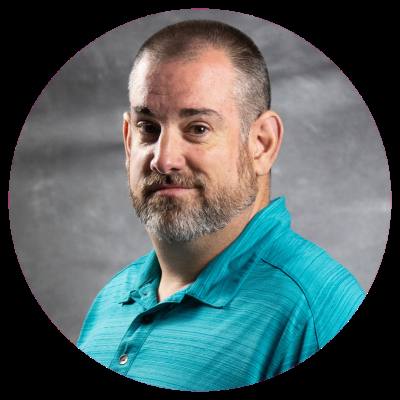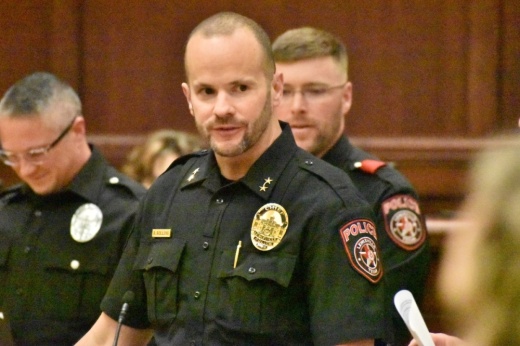Rollins was with the Arlington Police Department for 21 years prior to his new role, according to a news release issued when he was hired. Rollins served as a patrol officer, field training officer, auto theft detective, SWAT team member, patrol supervisor, criminal investigation division supervisor, SWAT team supervisor, patrol commander, training commander and technical service commander in Arlington, the news release states. Rollins said he graduated from Coppell High School and earned degrees from Texas A&M University and The University of Texas at Arlington.
Community Impact spoke to Rollins about his new role, the police department's future and his background. The interview has been edited for length and clarity.
Why were you interested in this position?
Lewisville has always been a very reputable police department, very well run in the law enforcement network and has alway been supported by a great community. The leadership of the city governance is also well-established and supportive of law enforcement. As an executive in policing, as you're looking at shaping your own career, you want to be in a place where you know you're going to be supported to bring your new ideas and your tenacity to the job. Lewisville checks all those boxes.
What has the transition been like?
Chief Deaver left this police department in very good condition. The challenges I have are not huge. They're just trying to find the right way to operate in the current world of policing as it is today. I'm kind of standing by and watching a lot of things, keeping my mouth shut and my eyes and ears open, paying attention to how we conduct ourselves, and then applying my thoughts on what to do. So I haven't really implemented a bunch of changes yet because even though things look different and are different ... doesn't mean that it's wrong or needs to be changed, and I don't want to be preemptively reactive without having a chance to learn about what's going on. So that's why it's a tiring first month trying to be in as many places as possible to understand why don't we do it this way and how we do it this way. I imagine there'll be some good things that we'll have a chance to embrace and edit as time goes forward.
What would you like to accomplish within your first year?
The department has a pretty good take on transparency. We earn the right to police every day from this community. We're only going to be able to do the things with the responsibilities our community and our citizens give us as far as management, so I want to be transparent with the public. I'm looking at kind of editing or enhancing some of our publicly accessible information like crime data, officer interaction data with the general public from the use of force, traffic stops, things that the public wants to know. Another thing I've really been pushing is increasing our use of social media. People really get their information from social media. For a police department, if we don't tell our story, the public will tell it for us. And I would rather we be the ones to talk about what's going on with us instead of waiting for stories to hit social media or the news. To me, [we need to have] more communication with the news, more communication with social media and more standing in front of the public as often as possible. The audience size doesn't matter. It's just the message itself being physically present.
You helped start the Arlington Police Department's drone program in 2012. What was that like?
It was assigned to me because I'm a licensed pilot. At the time, the [Federal Aviation Administration] statutory mandate was you can't operate a drone as a government entity unless you have a pilot's license. It was a program I started and I was deeply involved with. We really learned a lot with that drone program, and I look forward to bringing this type of technological and operational efficiencies to the Lewisville Police Department.
Does Lewisville have a drone program?
We have a drone program here in Lewisville. I do want to expand that program and really get to kind of tap into the force multiplier of a drone that allows us better surveillance of a call for service that we may be going to where we can not go up to a circumstance that can be very dangerous. We can take our time, use the camera to see what we need to see. We could even communicate with somebody to get them to come to us and put the gun down and all these things that avoid using force and enhance officer safety. That's what that drone program has been called for. That's something I'm excited to look to work through here.





